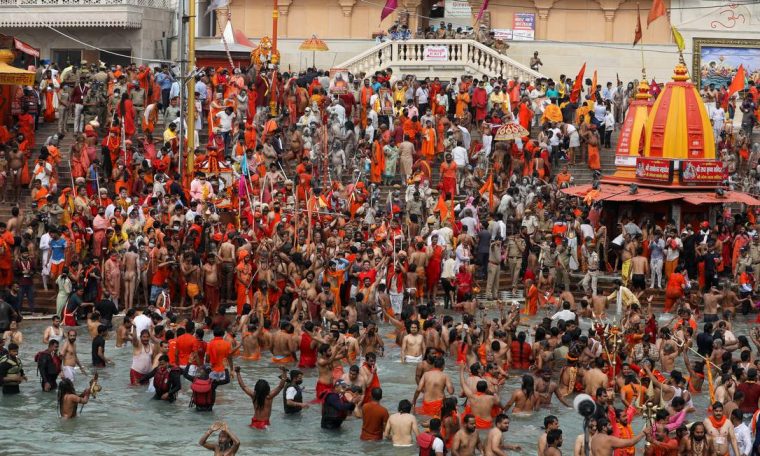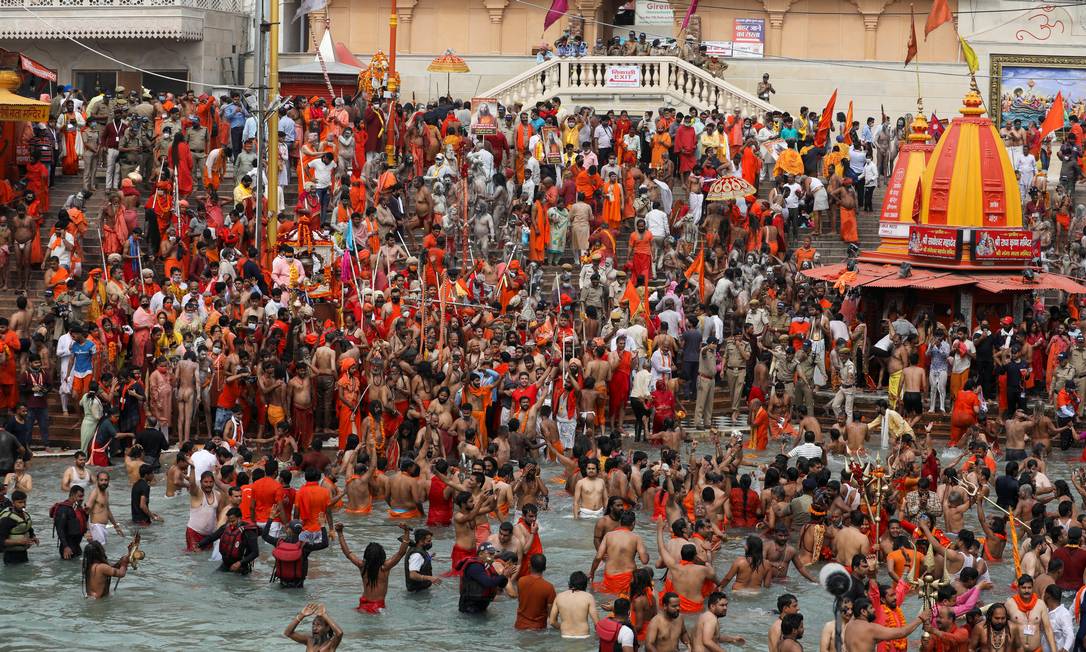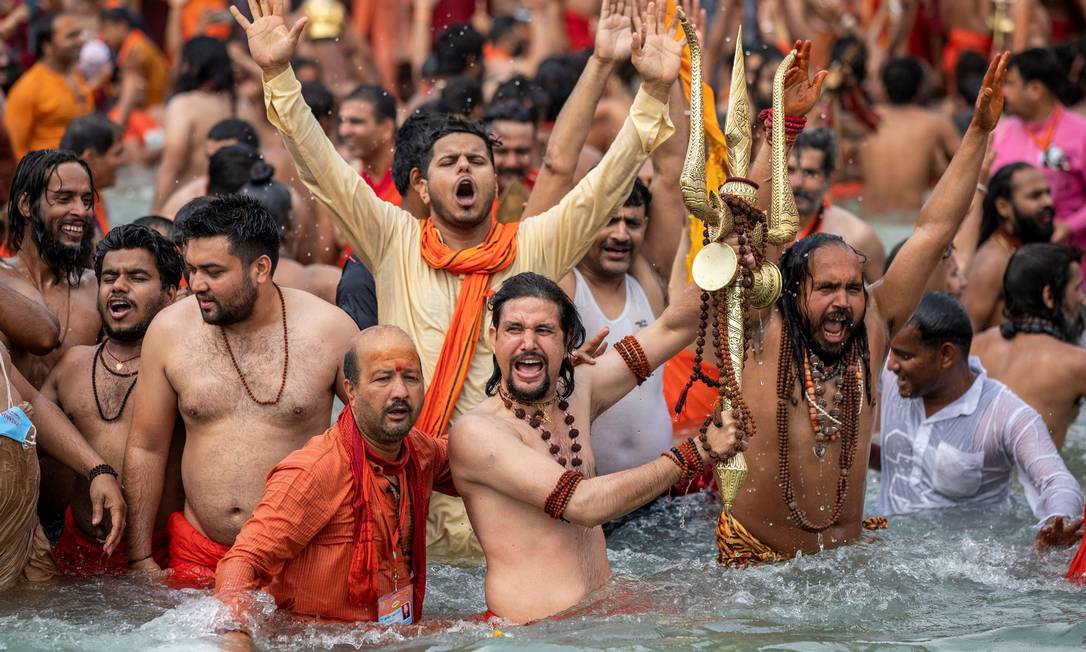
A crowd of Hindus gathered on the Ganges river on Monday (12) to commemorate the world’s largest Kumbh Mela religious festival, the daily record of Kovid-19 cases. It is estimated that in the north of the country, about five million pilgrims visit the city of Haridwar, where this year’s festival takes place.
The traditional bathing scenes of devotees gathered without social distance and protective equipment took place on the same day that India overtook Brazil in the ranking of countries with the world’s highest number of infected people. With 13.52 million infected with coronavirus, the nation ranks second after the United States, with 31.2 million Kovid-19 diagnoses with absolute values.
The Kumbh Mela takes place every 12 years and is always held in four cities, which alternate as headquarters. Hindus believe that the river is sacred and that bathing in it will free them from their sins and bring salvation. Health experts called for the event to be canceled, but the government ignored the guidance. The rationale was that security rules would be followed, which was not followed.

According to the BBC, officials said that more than 2.1 million devotees had bathed in the river by noon local time, with many more pilgrims still expected. This Monday is considered to be the main bathing day during the two-month festival.
The government had previously stated that only those testing negative for Kovid-19 would be allowed in ceremonies and strict measures such as social isolation would be followed. However, police confirmed to the local media that it is difficult to control the crowd along the river.
“We are constantly appealing to people to follow appropriate behavior against Kovid-19. But due to the huge crowd, issuing fines today is practically not possible. It is very difficult to guarantee social distance on the margins,” The Inspector General said. Police officer Sanjay Gunjyal to ANI news agency.

As the country reaches more than 168,000 cases of the disease in 24 hours, its sixth consecutive record, officials worry that the number of infections will be triggered by congestion and pilgrims will carry the virus back to their cities. The second wave, which began in India in March, intensified last week and ended in a shortage of hospital beds and medications for patients with coronovirus.
The festival’s headquarters are the most affected by the outbreak of the state of Maharashtra, with an average of 30% to 40% of cases per day in the country. The locality deals with restrictive measures such as curfews and inhibitors. According to CNN International, other punctual actions were also taken for the purpose of providing 15,000 security guards for religious ceremonies such as installing artificial intelligence cameras and engaging devotees.
India has administered more than 100 million doses so far, but the pace needs to increase even more to prevent the spread of the virus, experts say.



